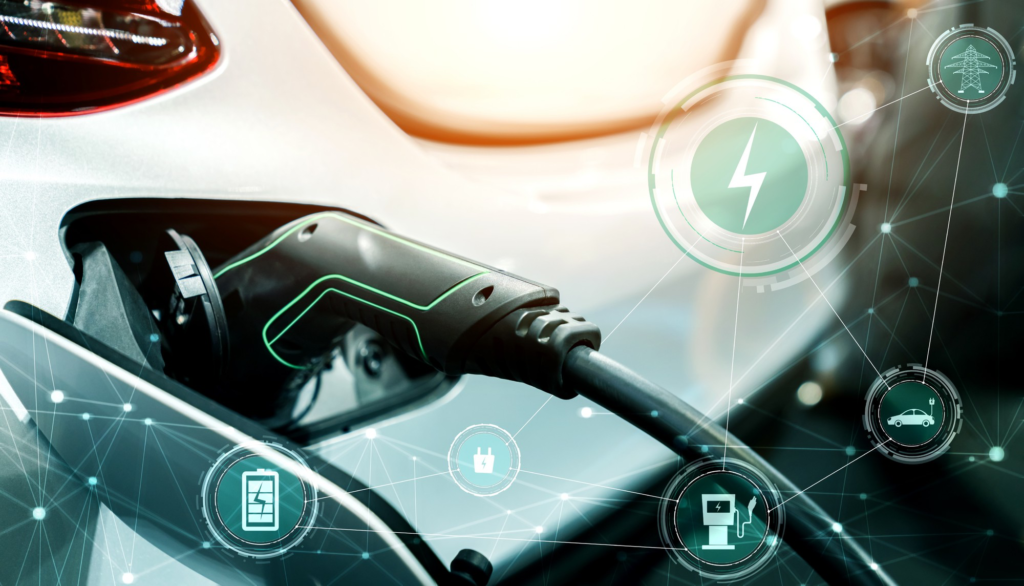
Alternative fuel vehicles powered by renewable energy sources, such as natural gas and vegetable oil, have gained popularity as people prioritize environmentally friendly transportation options. Two prominent contenders in the market are hybrid cars, green vehicles that use alternative fuels, and hydrogen cars, fuel cell vehicles that rely on fuel cells. Hybrid cars, called green vehicles, combine gasoline and electric power, offering improved fuel efficiency and reduced emissions. They are a sustainable transportation option that helps reduce dependence on traditional fuels and promotes using alternative fuels such as biodiesel. On the other hand, hydrogen cars utilize hydrogen fuel cells as an alternative energy source to generate electricity, emitting only water vapor as a byproduct. These vehicles help reduce vehicle emissions by using biodiesel.
Understanding the pros and cons of electric vehicles (EV), biodiesel, and fuel cell vehicles is crucial for making informed decisions about our transportation choices. While hybrid cars have gained significant traction in recent years with various models available from automakers worldwide, fuel cell vehicles, which utilize fuel cell technology, are still in the early stages of development and production. These vehicles offer improved fuel economy and use fuel cells to generate power. Factors such as range limitations, infrastructure challenges (such as hydrogen refueling stations), and cost considerations for cell vehicles must be carefully evaluated.
In this blog post, we will delve into the pros and cons of hybrid, hydrogen, and fuel cell vehicles, providing you with valuable insights to help you navigate through this evolving landscape of alternative fuels for automobiles.
Benefits of Hybrid Cars

Hybrid cars, known for their fuel economy, have gained popularity in recent years due to their numerous benefits. With the advancement of hydrogen fuel cell technology, vehicles are also becoming viable for environmentally conscious consumers. Let’s explore some of the advantages hydrogen fuel cell cars offer over traditional gasoline-powered vehicles, particularly in terms of fuel economy and the use of hydrogen fuel cell technology.
Better Fuel Economy
One of the primary advantages of hybrid cars is their superior fuel economy, particularly in comparison to traditional gas-powered vehicles. Hybrid cars achieve this by combining internal combustion engines and electric motors, increasing efficiency and reducing fuel consumption. Additionally, hybrid cars can be powered by alternative energy sources such as hydrogen ions or fuel cells, reducing their environmental impact. These hydrogen fuel cell cars are designed to maximize fuel economy and efficiency by combining an internal combustion engine with an electric motor. The hybrid technology in cell vehicles allows for better fuel utilization, resulting in fewer trips to the gas station and saving you money in the long run.
Regenerative Braking and Increased Energy Efficiency
Hybrids, including hydrogen fuel cell vehicles, utilize regenerative braking, which sets them apart from conventional cars. These vehicles offer improved fuel economy and are powered by hydrogen fuel cells. When you brake or decelerate in a hybrid vehicle, kinetic energy is converted into electrical energy and stored in the battery. This energy can then be used to power hydrogen fuel cell vehicles, also known as hydrogen fuel cell cars, which rely on hydrogen fuel cells for propulsion. This process helps recharge the battery of hydrogen fuel cell cars and increases overall energy efficiency in hydrogen fuel cell vehicles. As a result, hybrids can make more efficient use of fuel compared to traditional vehicles, which dissipate this energy as heat during braking.
Environmental Benefits
Reducing vehicle emissions is crucial for combating climate change and improving air quality. One promising solution is using hydrogen fuel cells in hydrogen fuel cell vehicles. Hybrid cars, including hydrogen fuel cell vehicles, play a significant role in achieving these goals. Hydrogen fuel cells are an essential component of these vehicles. Due to their electric motors and advanced technologies, hydrogen fuel cell vehicles emit fewer greenhouse gases and pollutants into the atmosphere than gasoline-powered cars. This reduction contributes to cleaner air quality and a healthier environment for everyone, especially using hydrogen fuel cells and vehicles.
Increased Power Output
Contrary to popular belief, hybrid cars are not just about fuel efficiency; they also offer increased power output when needed. Combining an internal combustion engine with an electric motor and hydrogen fuel cells provides additional torque, allowing hybrids to accelerate more efficiently than traditional vehicles. This extra power from hydrogen fuel cells can come in handy when merging onto highways or overtaking other vehicles on the road.
Cost Savings
While hybrid cars with hydrogen fuel cells may have a higher upfront cost compared to conventional vehicles, they can lead to significant savings over time. With improved fuel economy comes reduced dependence on gasoline, resulting in lower monthly fuel expenses for owners. Some governments offer incentives and tax credits for purchasing hydrogen fuel cell vehicles, further offsetting the initial cost of hydrogen fuel cells.
Reduced Noise Pollution
Hybrid cars operate more quietly than traditional vehicles. The electric motor in hydrogen fuel cell vehicles and hybrids produces less noise, especially at lower speeds. Reducing noise pollution can make for a more peaceful driving experience for hydrogen fuel cell vehicles and contribute to a quieter environment in urban areas.
Drawbacks of Hybrid Vehicles

While hybrid cars offer numerous benefits, it’s important to consider their drawbacks, especially when compared to hydrogen fuel cell vehicles. Let’s take a closer look at some of the cons associated with hybrid vehicles, specifically those powered by hydrogen fuel cells.
Higher upfront costs
One of the main drawbacks of hybrid cars is their higher upfront costs compared to conventional gasoline-powered vehicles. However, using hydrogen fuel cell technology in hybrid cars can help mitigate this issue. The advanced technology and components required for hydrogen fuel cell hybrid systems contribute to this increased expense. However, it’s worth noting that over time, the cost difference between hydrogen fuel cell hybrids and traditional vehicles gradually decreases as technology advances and becomes more accessible.
Limited all-electric range
Hybrid cars typically have a limited all-electric range, so they rely on their internal combustion engines after a certain distance. However, some hybrid cars are equipped with hydrogen fuel cell technology. This limitation can be inconvenient for those who frequently embark on longer trips or have lengthy commutes, especially when using a hydrogen fuel cell. It may require frequent refueling or recharging stops, reducing the overall convenience and potentially increasing travel time.
Battery degradation over time
Another concern with hybrid vehicles is battery degradation over time, especially about hydrogen fuel cell technology. As with any rechargeable battery, the performance and capacity of hybrid car batteries, including hydrogen fuel cells, can diminish over years of use. This degradation can result in decreased performance and reduced driving range, requiring eventual battery replacement or refurbishment. The degradation can also affect the efficiency and lifespan of hydrogen fuel cell systems.
Reliance on fossil fuels for charging
Although hybrids are designed to improve fuel efficiency and reduce emissions, their reliance on fossil fuels for charging limits their environmental benefits. While electric power assists in reducing fuel consumption during operation, charging the battery still relies on electricity generated from conventional sources like coal or natural gas power plants. This byproduct raises concerns about sustainability and offsets some of the environmental advantages of these vehicles.
Despite these challenges, it’s important to remember that no vehicle is perfect, and each option has its own pros and cons. Hybrid cars remain an excellent choice for individuals seeking improved fuel efficiency without committing fully to electric vehicles.
Advantages of Hydrogen Cars

Hydrogen cars, also known as hydrogen fuel cell vehicles, have gained attention as a promising alternative to traditional gasoline-powered vehicles. These innovative vehicles utilize hydrogen fuel cells to generate electricity, resulting in zero greenhouse gas emissions. Let’s explore some advantages that make hydrogen cars appealing for environmentally conscious drivers.
Zero Greenhouse Gas Emissions
One of the most significant advantages of hydrogen cars is their ability to emit zero greenhouse gases. Unlike internal combustion engines that burn fossil fuels and release harmful pollutants into the atmosphere, hydrogen fuel cells produce only water vapor as a byproduct. This makes hydrogen cars a truly clean and eco-friendly transportation option, helping to combat climate change and reduce air pollution.
Quick Refueling Times
Another advantage of hydrogen cars is their quick refueling times, comparable to traditional gasoline-powered vehicles. Unlike electric cars that require hours to recharge their batteries, filling up a hydrogen car with hydrogen gas takes just minutes. This convenience allows drivers to enjoy shorter pit stops during long journeys or daily commutes without compromising on time.
Long Driving Ranges
Hydrogen cars offer impressive driving ranges that eliminate concerns about limited travel distance between refueling stations. With advancements in technology and infrastructure development, these vehicles can now travel hundreds of miles before requiring a refill. This extended range gives drivers the freedom and peace of mind to embark on longer trips without worrying about finding a refueling station.
Efficient Energy Conversion
Fuel cell technology in hydrogen cars offers high energy density, efficiently converting hydrogen gas into electricity. The process involves the reaction between oxygen from the air and stored hydrogen ions within the fuel cell stack. As this reaction occurs, electrical energy is generated to power the vehicle’s motor. This efficiency ensures that more energy is used for propulsion rather than wasted as heat or emissions.
Disadvantages of Hydrogen Vehicles
Scarcity of Hydrogen Refueling Infrastructure
One major drawback hindering the widespread adoption of hydrogen cars is the scarcity of hydrogen refueling infrastructure. Unlike readily available gasoline stations, hydrogen refueling stations are still limited in number and concentrated in specific regions. This scarcity poses a significant challenge for individuals who wish to own and operate hydrogen vehicles, as they may not have convenient access to refuel their cars when needed. The lack of a comprehensive network of refueling stations restricts the mobility and practicality of hydrogen cars, making them less appealing to potential buyers.
High Production Costs
Another disadvantage of hydrogen vehicles is the high production costs of hydrogen fuel cells. These fuel cells are integral components that convert hydrogen into electricity to power the vehicle. However, the complex manufacturing process and expensive materials required for these fuel cells contribute to hydrogen car production costs. As a result, these vehicles tend to be more expensive than traditional gasoline or hybrid cars. The higher price tag can deter many consumers from considering hydrogen vehicles as a viable option, especially when more affordable alternatives are available.
Storage and Transportation Challenges
Hydrogen gas, used as fuel in these vehicles, poses certain safety concerns due to its highly flammable nature. Storing and transporting large quantities of highly pressurized or liquefied hydrogen gas can be challenging and potentially hazardous if not handled properly. Ensuring safe storage and transportation infrastructure adds complexity and cost to the overall operation of hydrogen vehicles. Moreover, addressing safety concerns about potential hydrogen leaks or accidents requires stringent regulations and safety protocols.
Despite technological advancements to improve safety measures surrounding hydrogen storage and transportation, these challenges remain a significant disadvantage for widespread adoption.
Environmental Impact: Hybrid vs. Hydrogen Cars
Both hybrid and hydrogen cars offer promising solutions. However, it’s important to consider their environmental impact before deciding. Let’s delve into the pros and cons of each option.
Hybrids Reduce Carbon Emissions but Still Rely on Fossil Fuels for Part of Their Operation
Hybrid cars are known for their ability to reduce vehicle emissions and lessen the carbon footprint. By combining an internal combustion engine with an electric motor, hybrids can achieve better fuel efficiency compared to traditional gasoline-powered vehicles. This results in reduced greenhouse gas emissions and contributes to mitigating climate change.
Pros of hybrid cars:
- Lower fuel consumption and reduced CO2 emissions.
- A regenerative braking system that converts kinetic energy into electricity, further improving efficiency.
- Availability of various models from different manufacturers.
Cons of hybrid cars:
- Limited all-electric range compared to fully electric vehicles.
- The reliance on fossil fuels for part of their operation still contributes to emissions.
- Battery disposal and recycling challenges need proper management.
Hydrogen Cars Produce Zero Tailpipe Emissions, Significantly Reducing Greenhouse Gas Emissions
Hydrogen cars represent another environmentally friendly option as they produce zero tailpipe emissions. Instead of relying on fossil fuels, these vehicles use hydrogen as fuel, which is converted into electricity through a fuel cell stack. This process eliminates harmful exhaust gases such as carbon dioxide (CO2).
Pros of hydrogen cars:
- Zero tailpipe emissions contribute to cleaner air quality and reduced greenhouse gas emissions.
- Fast refueling time compared to electric vehicles.
- Longer driving range than most battery-powered electric cars.
Cons of hydrogen cars:
- Limited availability of refueling infrastructure.
- High production costs due to complex technology involved in manufacturing fuel cells.
- Challenges associated with storing and transporting hydrogen safely.
The Production of Hydrogen Fuel Can Be Achieved Through Renewable Energy Sources, Further Reducing Environmental Impact
One of the key advantages of hydrogen cars is that hydrogen fuel production can be achieved using renewable energy sources. We can significantly reduce the environmental impact associated with its production by utilizing wind, solar, or hydroelectric power to generate hydrogen.
Pros of renewable hydrogen production:
- Reduced reliance on fossil fuels for hydrogen production.
- Lower carbon emissions during the manufacturing process.
- Potential for a sustainable and clean energy future.
Cons of renewable hydrogen production:
- Initial high costs and infrastructure requirements for renewable energy systems.
- Technological advancements are needed to scale up renewable hydrogen production.
- Limited availability and accessibility in some regions.
The Manufacturing Process for Hybrid and Hydrogen Cars Involves the Use of Raw Materials and Energy
While hybrid and hydrogen cars offer environmental benefits during their operation, it’s crucial to consider their overall impact throughout their lifecycle. The manufacturing process involves using raw materials and energy, which should be considered when assessing their environmental footprint.
Pros of considering manufacturing impact:
- Increased awareness about sustainable sourcing of raw materials.
- Encouragement for manufacturers to adopt eco-friendly practices.
- Opportunities for innovation in reducing energy consumption during production.
Cons of considering manufacturing impact:
- Higher initial costs are associated with implementing sustainable manufacturing processes.
- Challenges in streamlining supply chains for greener materials.
- Balancing economic viability with environmental considerations.
Cost Comparison and Government Incentives
Hybrid vehicles have gained popularity recently due to their improved fuel efficiency, which generally translates to lower operating costs. By combining an internal combustion engine with an electric motor, hybrid cars can significantly reduce fuel consumption and save drivers money at the pump.
In addition to the potential savings on fuel, government incentives are available for those considering purchasing a hybrid vehicle. These incentives come in the form of tax credits and rebates, which can help offset the initial cost of buying a hybrid car. The specific amount of these incentives varies depending on where you live and the make and model of the vehicle.
On the other hand, hydrogen cars offer another alternative. However, one drawback is their higher initial price than traditional gasoline-powered or hybrid vehicles. This higher cost is mainly due to the relatively new technology involved in producing hydrogen cars.
However, as technology advances and economies of scale improve, the prices of hydrogen cars are expected to decrease over time. Governments worldwide are investing in research and development efforts to reduce costs and make hydrogen vehicles more accessible to consumers.
When comparing fueling costs between hydrogen cars and traditional gasoline or electric vehicles, it’s important to note that hydrogen fueling infrastructure is still limited in many areas. As a result, finding a hydrogen refueling station might be more challenging than finding a gas station or charging point for electric vehicles.
Moreover, since producing hydrogen requires energy-intensive processes such as electrolysis or steam methane reforming, it can be more expensive than electricity or gasoline per unit of energy provided. This factor affects overall cost comparisons between different types of vehicles.
Despite these challenges, governments are promoting adopting hybrid and hydrogen vehicles by offering grants and subsidies for their purchase. In some states in the United States, for example, financial incentives are available specifically for hydrogen cars, including grants and tax credits.
Future Outlook: Hybrid vs. Hydrogen Cars
Technological advancements have paved the way for alternative fuels in the automotive industry, and two prominent contenders are hybrid and hydrogen cars. While hybrids currently dominate the market due to their established infrastructure and lower costs, there is also a growing interest in hydrogen cars. Let’s explore the future outlook for both options.
Hybrids: More Prevalent with Potential for Growth
Hybrid vehicles, which combine a traditional gasoline engine with an electric motor and battery, have gained popularity in recent years. This can be attributed to their affordability compared to fully electric vehicles and the availability of charging infrastructure. With advancements in battery technology, hybrids are expected to see an increase in their all-electric range, reducing reliance on gasoline even further.
Pros of Hybrids:
- Lower emissions compared to traditional gasoline-powered cars
- Better fuel efficiency leads to cost savings
- Established charging infrastructure makes them more accessible
Cons of Hybrids:
- Limited all-electric range compared to fully electric vehicles
- Reliance on fossil fuels (gasoline) for longer trips
- Battery disposal and recycling challenges
Hydrogen Cars: Overcoming Challenges for a Greener Future
While hydrogen cars are less prevalent than hybrids, they hold significant potential for a greener transportation sector. These vehicles use hydrogen gas stored in high-pressure tanks that power an electric motor through electrolysis. The main challenge lies in establishing a robust refueling infrastructure for hydrogen, but ongoing research and development efforts aim to overcome this hurdle.
Pros of Hydrogen Cars:
- Zero emissions – only water vapor is produced as a byproduct
- Quick refueling time similar to traditional gasoline cars
- Long driving range without compromising performance
Cons of Hydrogen Cars:
- Limited availability of refueling stations globally
- High production costs due to complex technology
- Challenges associated with hydrogen storage and transportation
The Future: Potential Growth for Both Technologies
As society prioritizes sustainability and combat climate change, hybrid and hydrogen technologies have growth potential. While hybrids currently dominate the market, advancements in battery technology may bridge the gap between hybrids and fully electric vehicles. On the other hand, ongoing research into hydrogen production, storage, and infrastructure will contribute to making hydrogen cars a viable option.
It is important to note that these technologies are not mutually exclusive but complementary. Each has its advantages and challenges. As we move forward, various alternative fuel options will likely be adopted to cater to varying needs and preferences.
Choosing the Right Alternative Fuel Vehicle
Now that we’ve explored the pros and cons of hybrid and hydrogen cars, it’s time to decide. Both options offer unique benefits and drawbacks, so it ultimately comes down to your preferences and priorities. A hybrid car might be the right choice if you’re looking for a vehicle with excellent fuel efficiency, reduced emissions, and a proven track record. On the other hand, if you’re excited about cutting-edge technology, longer driving ranges, and the potential for zero-emission transportation in the future, a hydrogen car could be worth considering.
No matter which alternative fuel vehicle you choose, it’s important to remember that our individual choices can collectively impact the environment. By opting for an alternative fuel vehicle, you’re taking a step towards reducing your carbon footprint and contributing to a more sustainable future. So go ahead and take that leap! Explore the world of alternative fuel vehicles, weigh your options carefully, test drive different models if possible, and make an informed decision based on what aligns with your needs and values.
FAQs
Can I refuel a hybrid car at any gas station?
Yes! Like conventional vehicles, hybrid cars use gasoline as their primary fuel source. You can refuel them at any gas station without special requirements or infrastructure.
Are hydrogen cars expensive to maintain?
Hydrogen cars may require specialized maintenance due to their unique technology. However, as these vehicles become more mainstream in the future, maintenance costs are expected to decrease gradually.
Are there enough hydrogen refueling stations available?
Currently, hydrogen refueling stations are limited compared to traditional gas stations. However, governments and private companies are investing in expanding this infrastructure as the demand for hydrogen cars grows.
Can I charge a hybrid car at home?
Most hybrid cars do not require external charging as they generate electricity through regenerative braking or by using their internal combustion engine. This means you don’t need to install a charging station at home.
Are hybrid cars suitable for long-distance driving?
Absolutely! Hybrid cars are designed to provide excellent fuel efficiency, making them ideal for long-distance driving. Combining an internal combustion engine and an electric motor ensures a balance between power and efficiency on highways and city streets.










Leave a Reply